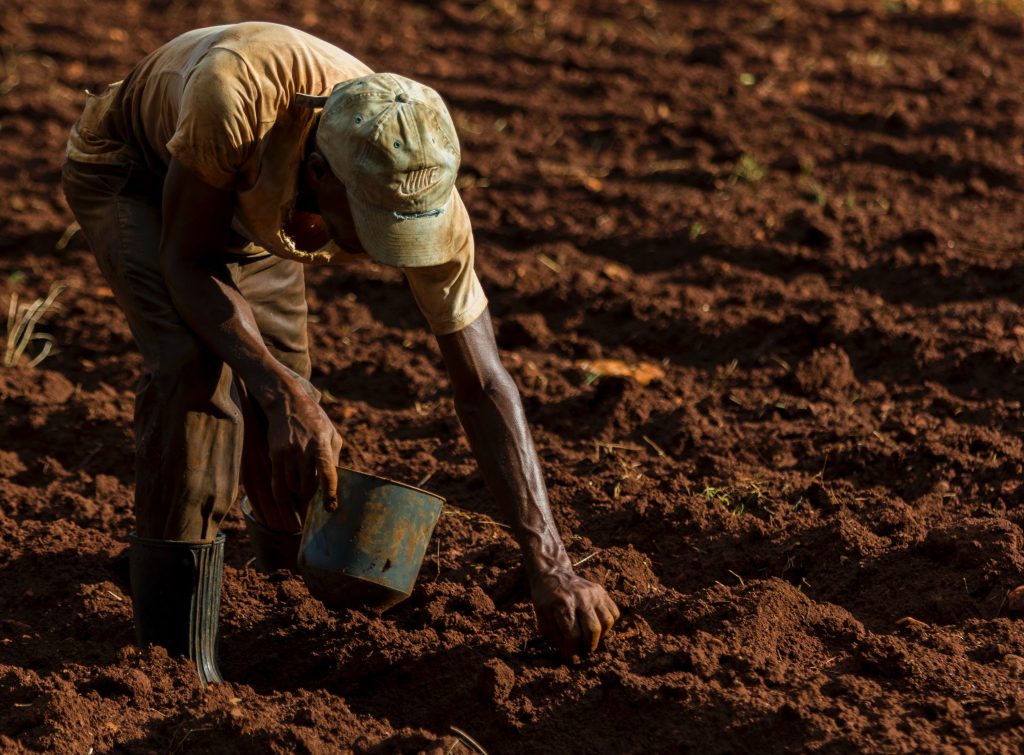JUST RURAL TRANSITION

We asked one of our programme partners for the Food and Agriculture Theme, Just Rural Transition, to explain more about their work and how it connects with the aims of the COP Resilience Hub.
Agriculture and food systems currently contribute around one-third of global greenhouse gas emissions, and food systems on land and at sea threaten 86% of at-risk species. Simultaneously, farmers, fishers, ranchers, and other communities producing our food are often on the front line of increased shocks and stresses from climate change and environmental degradation. We urgently need a transition towards fairer, more sustainable, and resilient food systems.
TheJust Rural Transition (JRT) initiative brings together food producers, governments, businesses, investors, civil society, rural and indigenous peoples to champion equitable solutions to food systems challenges. We are working to ensure these solutions involve integrated and holistic policies that juggle multiple priorities, optimising public goods and minimising trade-offs.
Resilience is therefore a core pillar of our 2030 Vision to transform food systems, protect and restore nature, and feed a growing global population. By the end of the decade, we aim to have enhanced resilient livelihoods by catalysing policies, regulations, and investments which support farming, fishing, livestock-keeping, and indigenous communities to adapt to climate change.
A key aspect of our work is the convening of a collective of governments from the Global North and South who are willing to repurpose agricultural support and reform policies into those that enhance resilient agricultural production, support the sustainable stewardship of nature, and help us to achieve food and nutrition security for nine billion people by 2030.
However, social equity, inclusion, and diversity are always at the heart of the JRT initiative. Through our work, we aim to support resilient rural communities around the world, placing people and their livelihoods at the centre of conversations about climate change and ensuring they are represented in policy and investment processes and outcomes.
Agriculture workers facing extreme poverty
Indigenous peoples and rural communities manage 65% of the world’s land under customary tenure, however governments formally recognise these communities’ rights to only 18%. The effective stewardship of land and resources is shown to be complementary with the goals of poverty reduction and climate adaptation, and supporting local livelihoods and securing community tenure is one of the most cost-effective investments in climate mitigation and resilience. Similarly, agriculture workers and dependents make up two-thirds of the 740 million people facing extreme poverty, and they will be most at risk from land degradation and changes in climate by 2050. Producers’ voices deserve to be heard in the discussion on climate.
From governments and businesses to farmers and consumers, everyone has a role to play in transforming food systems. JRT brings together all agents of change, nurturing a multi-stakeholder community that can share evidence, access knowledge and case studies, and provide policymakers and the finance community with the tools they need to drive better policy and investment outcomes. At COP26, the Resilience Hub provides the perfect opportunity for these different stakeholders to come together to share knowledge, amplify diverse voices, and open areas for collaboration. JRT’s role as co-lead for the Resilience Hub’s food and agriculture theme is a powerful part of our campaign efforts to champion inclusive, people-centred solutions to food system challenges.
Beyond further mobilisation of communities in support of climate resilience at COP26, the JRT also aims to raise the issue of inequitable and unsustainable food systems on the global climate agenda. Food systems are the primary driver of biodiversity loss, but by working with nature and centring people, food systems can be part of our climate solution. In Glasgow, we want to highlight the importance of inclusive, evidence-based, and people-centred solutions worldwide. We likewise hope to further encourage support of the Policy Action Agenda for Transition to Sustainable Food & Agriculture, which identifies a range of concrete actions that both state and non-state actors can take to repurpose public support to agriculture.

